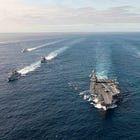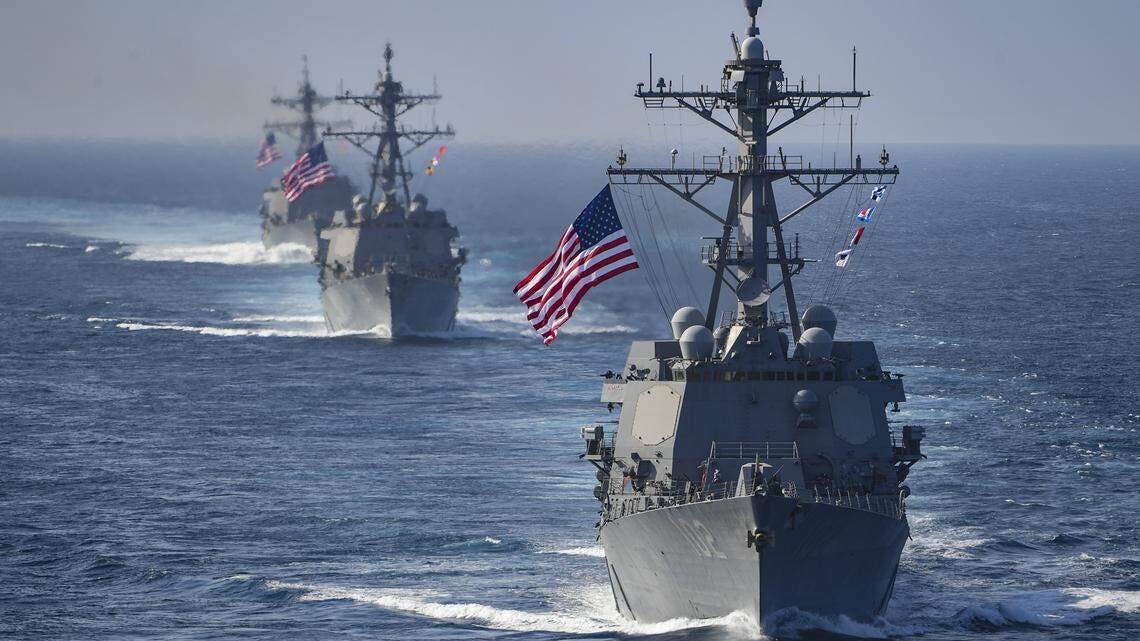Does the President Have Legal Authority to Blow Up Venezuela's Drug Boats? Turns Out He Does.
Presidents can act decisively against transnational threats like narco-terrorists under relevant statutes and Article II of the Constitution, with history and law on their side.
Don’t miss our Deep Dive on the U.S. military buildup off the coast of Venezuela.
by Clifford Angell Bates, Jr.
November 4, 2025
All the moaning about the president acting without Congress that I hear coming out of the mouths of Democrats, Libertarians, and so-called Conservatives alike just sets me off. Ah, the dangers of being bored away from one’s office and library, with idle hands, an hour to kill, and a tablet loaded with LexisNexis, constitutional law databases, and a speech-to-text editor that tempts mischief.
Voila — what began as an impatient reaction to partisan lamentations became a deeper inquiry into one of the oldest questions in American constitutionalism: when, and to what extent, may the president act without Congress?
The tension between legislative authority and executive initiative is as old as the Republic itself. It animates the framers’ careful division of powers in Articles I and II of the Constitution.
Still, it also exposes the dynamic, sometimes volatile, nature of American governance in times of crisis. From Jefferson’s naval expeditions against the Barbary pirates to modern operations against narco-terrorist cartels on the high seas, presidents have repeatedly asserted inherent or delegated powers to protect the nation and enforce federal law, often before or without explicit congressional authorization.
Critics decry these actions as executive overreach; defenders invoke constitutional necessity and historical precedent.
In this essay, I examine constitutional equilibrium through the lens of Article I, Section 8, Clause 10 — the Define and Punish Clause — and its interplay with Article II’s Take Care and Commander in Chief Clauses. It explores how Congress’s power to legislate against piracy, felonies on the high seas, and offenses against the law of nations has evolved into statutory regimes like the Maritime Drug Law Enforcement Act (MDLEA), and how these statutes, in turn, empower the president to interdict, seize, and, in extreme cases, use lethal force against narco-traffickers and narco-terrorists operating beyond U.S. territory.
The essay further examines the limits of this authority, including concerns about due process, the extraterritorial application of the Bill of Rights, and the scope of modern Authorizations for the Use of Military Force (AUMFs).
Ultimately, the debate is not about executive tyranny but constitutional interpretation: whether the architecture of separated powers was designed to restrain decisive action or to enable it when the Republic’s security and laws are at stake. In an era of transnational criminal networks and asymmetric warfare, the old quarrel over presidential power is anything but academic — it defines the frontier between legality, necessity, and survival.
Hostis Humani Generis and Legal Foundations
The legal concept of hostis humani generis comes from United States v. Smith (18 U.S. 153, 1820). Pirates, the Court explained, are “enemies of all mankind.” This principle allows universal jurisdiction over pirates. Any nation may apprehend and punish them, regardless of nationality or location.




